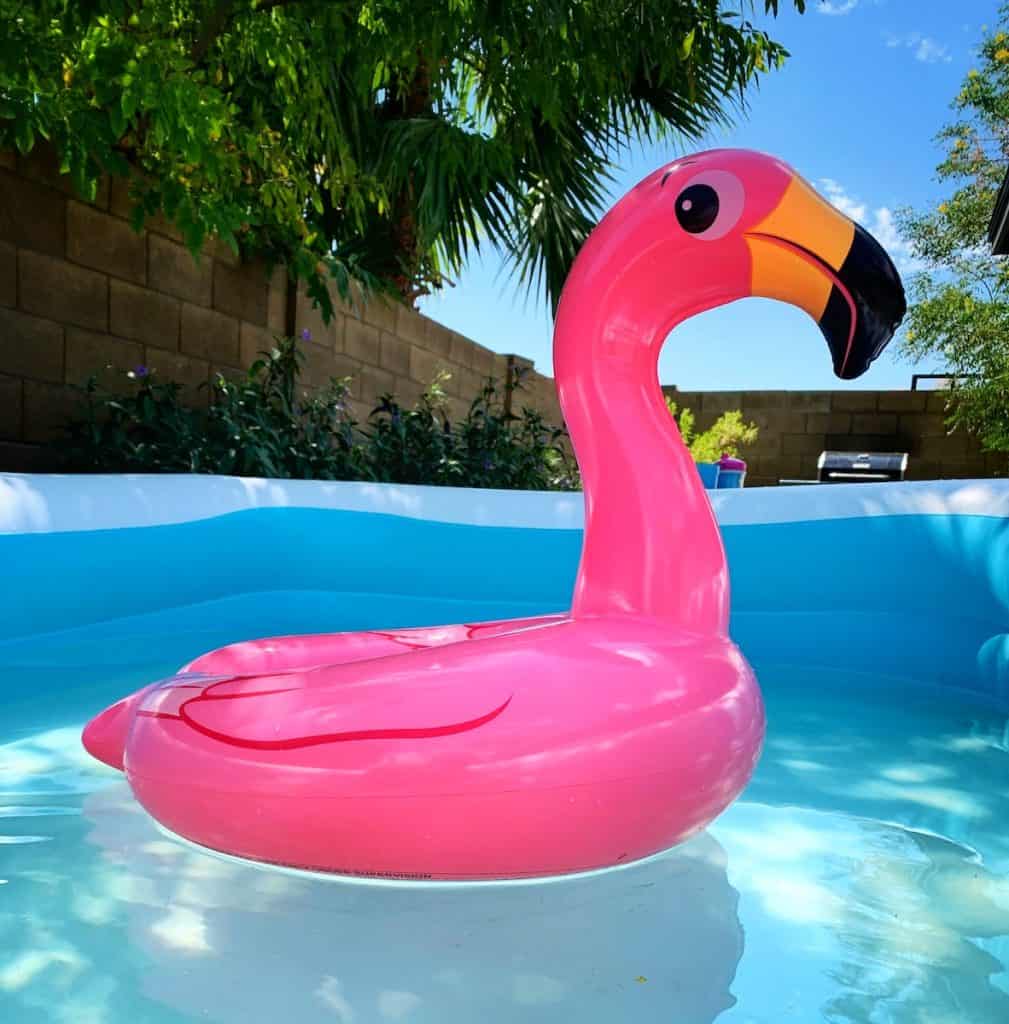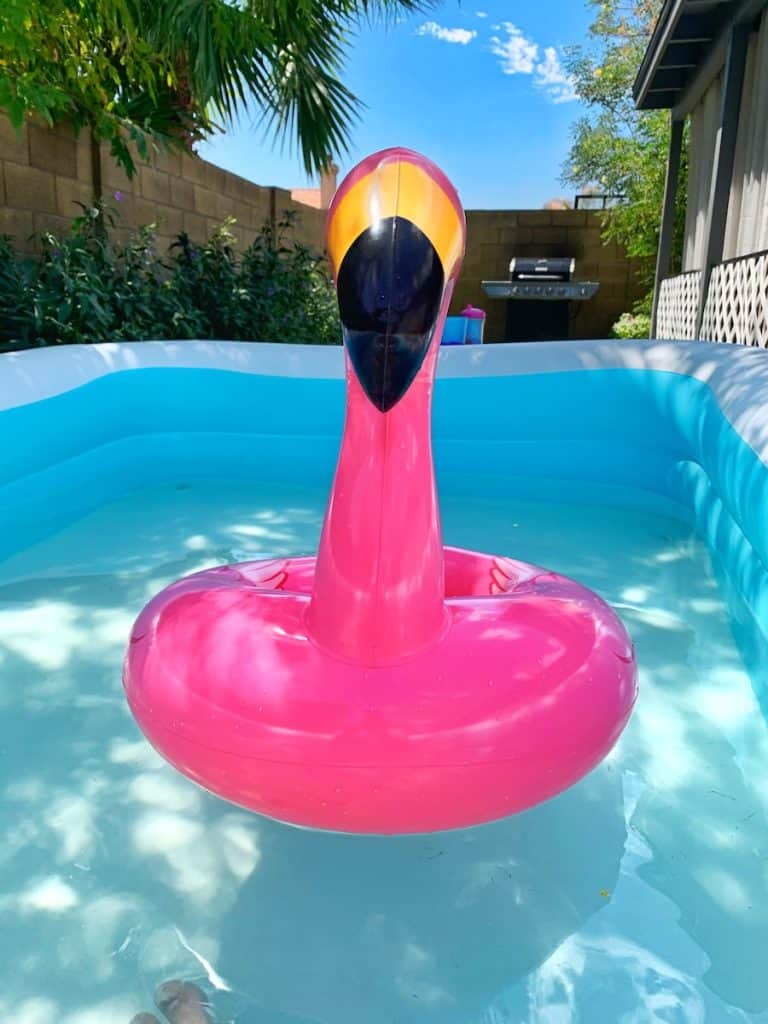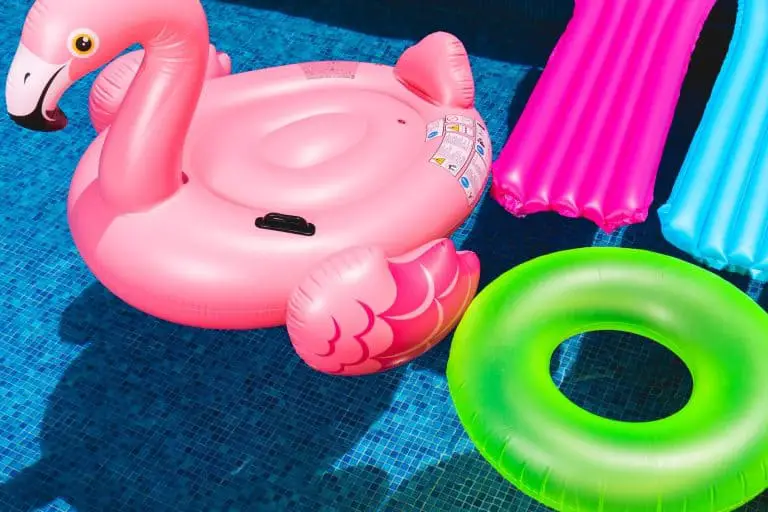How to keep inflatable pool water clean with salt? An inflatable pool or kiddie pool is what most people want to put in their garden, particularly if they don’t have the money or room for a bigger pool. Inflatable pools are ideal for spending time with your family during the summer since you can reach right into it.
Although the additional entertaining inflatable pool water is beneficial to youngsters, it is a difficulty for parents since they must frequently clean it. On a beautiful day in the summer, you can’t observe a youngster who isn’t eager to unwind in a backyard inflatable pool.
To keep inflatable pool water clean your pool with salt, all you need to do is notice a change in color or the presence of impurities.
In order to maintain your children’s safety, you must learn how to keep inflatable pool water clean with salt. As a new pool owner, it is essential that you learn how to properly disinfect your pool. Salt can act as a purifier to kill bacteria in your inflatable pools without chlorine or a filtration system present.
Although it is not suggested that you utilize chlorine in your little inflatable pool, it will be beneficial to a larger inflatable pool.

How to Keep Inflatable Pool Water Clean With Salt: Advantages
Although some people think that saltwater pools and the ocean are similar, they are actually quite different. So, how do you keep kiddie pool clean?
Adding salt to your wading kiddie pools is not done to decrease the risk of drowning, but rather to eliminate germs and bacteria that flourish in liquids. So, learning how to keep inflatable pool water clean with salt is essential.
They Are Gentler on The Eyes and Skin
The gentler treatment of your inflatable pool water with salt has several advantages, including that it is kinder to the eyes and improves the skin’s appearance. A Saltwater paddling pool is safer to swim in than a chlorinated pool since bloodshot eyes can occur after only 40 minutes of swimming in a chlorinated pool.
It Calms Your Immune System
Salt is a powerful disinfectant. Because saltwater pools have less of an effect on the body, they help to boost the immune system. Salt has been used for thousands of years in Chinese medicine as a strengthener of the immune system and one of its primary components.
It can reduce stress and anxiety
Those struggling with anxiety or stress can find relief by swimming in an inflatable saltwater pool. In fact, several studies have found that not only is salt water great for your body, but it also helps to quickly relax your mind. By treating your inflatable pool with salt, you can reap the benefits of swimming without any hassle and enjoy a calm state of mind.
It is easier and cheaper
Treating your inflatable pool with salt is easy and cheaper than chlorine. It does the same job as liquid or solid chlorine, but without any risk. Maintaining your inflatable pool with salt is easier than using chlorine, too. No matter how large or small your inflatable pool is, you’ll save money within a year from switching to salt.
It prevents bacterial and Algae growth
When your inflatable pool is not maintained, it may result in a variety of bacterial growth. Salting your inflatable pool water, on the other hand, changes everything. There’s no risk of algae or any other microbe growing if you treat your pool water with salt on a regular basis.

How to Keep Inflatable Pool Water Clean With Salt: Procedures
Below are steps on how to keep inflatable pool water clean with salt
Empty your inflatable pool
To ensure the water is clean, first empty the pool. Then you can continue with the next steps.
Clean the Walls and Surface
Before refilling your inflatable pool, clean or wash the walls and surface to remove any algae, trash, or other creatures. This step is not required if you just bought it new.
Refill and Add Salt
Fill your inflatable pool with fresh water and the appropriate amount of salt, as needed. The amount of salt required for each pool is determined by its size, salinity, and how many gallons it holds.
In order to raise the salt level in your pool from 1200 PPM to 2800 PPM, you will need to add 25 pounds of salt.
Periodically checking pool alkalinity and pH levels helps to keep the chemical balance in-check and makes sanitization more effective. Because salt dissolves slowly, you might not achieve precision with your measurements. However, any resulting discrepancies shouldn’t be significant, so you can monitor this daily.
Keep the Pool Open
It is best to keep your pool uncovered until the salt is completely dissolved, and this will prevent algae.

How to Keep Inflatable Pool Water Clean With Salt: Importance of Clean Inflatable Pool
Inflatable pools are a great addition to any backyard, but it’s important to remember that they need just as much care and attention as traditional pools. Stagnant water can attract bacteria, which then quickly multiply. So, while you’re considering installing an inflatable pool in your backyard, also be sure to take the necessary steps to keep it clean in order avoid any health risks associated with dirty or improperly maintained pools.
Having a targeted dimensions for your pool is key, and will also save you money by preventing future expenses from emerging. A well-maintained pool lasts longer and looks better too–remember to clean it every day instead of letting the mess pile up!
How to Keep Inflatable Pool Water Clean With Salt- Bottom Line
How to keep inflatable pool water clean with salt? The ADA recommends that pools with a depth of less than three feet (one meter) be treated with salt every 6-12 months. Salting is the only treatment for my in-ground and above-ground inflatable pools. I can state without hesitation that treating your inflatable pool with salt is an excellent option for your outdoor swimming exercise. As a result, you will be free of the problems associated with chlorinated pool water. If you believe the salt in the water is excessive, test the alkalinity and treat the water as needed.


